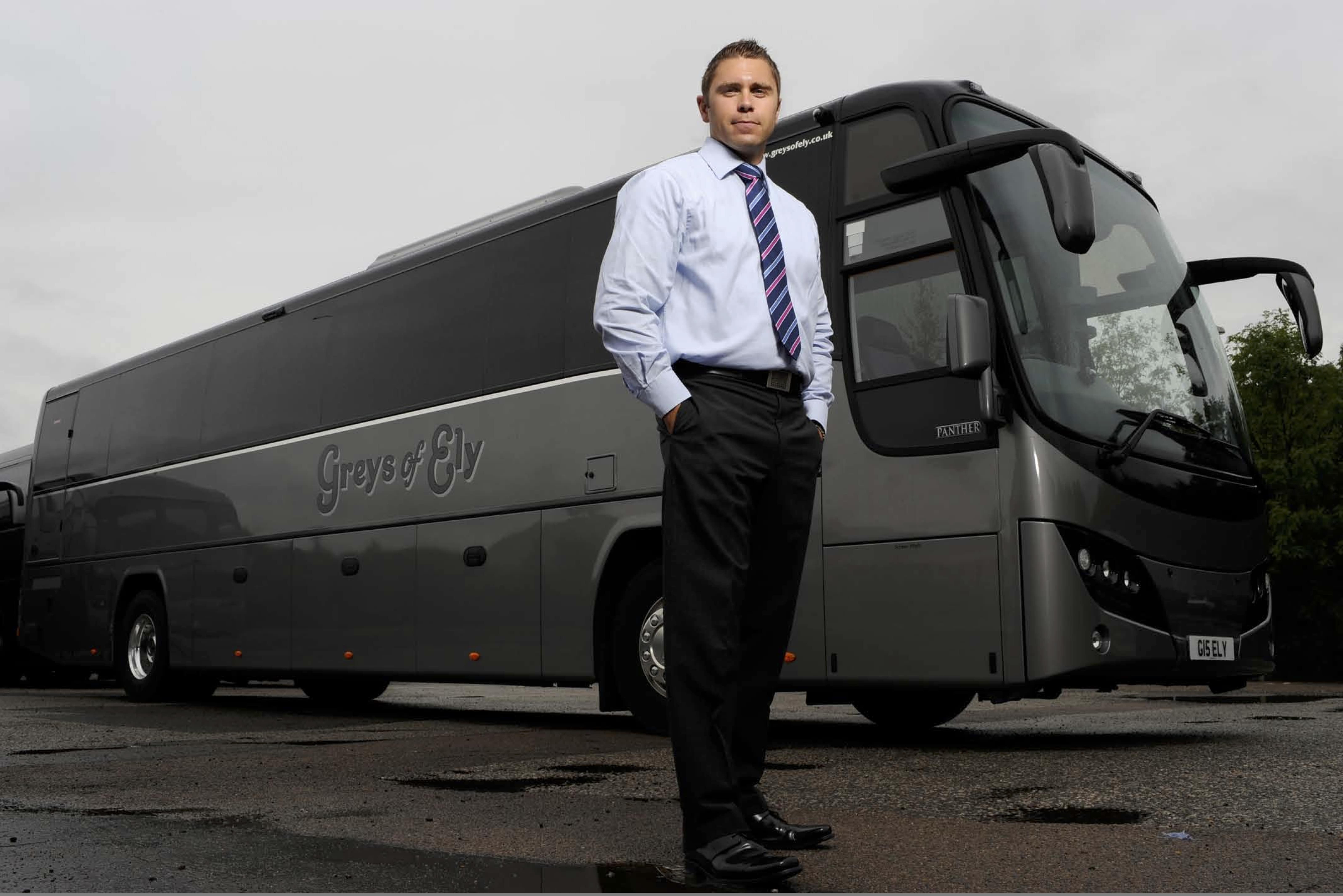Getting the work-life balance right can have a big impact on driver retention. We ask several operators how they keep staff happy
Finding and retaining drivers continues to be a struggle for many operators. Tyrers Coaches HR Manager James Robb recently revealed that concerns run the gamut from pay to working hours, the nature of the work and flexibility. With so many variables affecting drivers, finding a panacea is proving difficult. He adds that the impact of the cost-of-living crisis is compounding existing troubles, even though the full extent of its impact cannot yet be determined, alongside a recent over-subscription of school services from the local authority.
“We’re still trying to work out what it is that’s making people look elsewhere, because there doesn’t seem to be any one catch-all,” he says, revealing that the company is still “catching its breath” when it comes to driver recruitment.
Can coach operators therefore make adjustments to the way drivers work that encourages better retention?
Family focus
Shift patterns may be one string to operators’ bows where retention is concerned. One London operator utilises its fleet early in the morning and late in the afternoon, giving drivers a split shift in which they can return home and spend time with family during the day.
A pay rise and reduction in working days during the week has also helped, and is something the operator suggests “the industry will have to get used to”.
Scott Rattle, Transport and Operations Manager at Passenger Plus, says much of this shift is the result of the COVID-19 pandemic. “A lot of people realise they don’t have to work 60 hours a week now, and they don’t want to,” he says. “Because we’ve been paying the right rate, people can work their hours over four days knowing they can spend time with their families and still get the money that they know they are worth. It has been an advantage to us, because when we are tendering for contracts or taking on private hire work, I know straightaway by looking at my computer system who I’ve got off and who I’ve got on, and who doesn’t mind doing an extra day’s work here and there. I know that instantly, and so can say yes or no to the job.”
The focus on this work-life balance has ultimately also led to lower rates of sickness and fewer struggles at weekends, where jobs risked going uncovered with driver shortages. Regular rest days and floating rest days has meant more willingness among staff to work weekends, bolstered further by an uplift in pay over weekdays.
Presence in the London market also proves advantageous to paying higher rates, where a shortage of drivers is resulting in strong competition with operators required to cast the net wider each year.
 Treat employees well
Treat employees well
Operators elsewhere have seen success in new methods to retain drivers. Cambridgeshire-based Greys of Ely highlighted the difficulty in finding drivers to cover weekends pre-pandemic when it looked for ways to level out peaks and troughs in business.
Mixed in with finding the work-life balance is finding the right level of remuneration. A move to split shifts during the pandemic led Greys to look at ways in which costs could be fixed, while also giving a better work-life balance to employees. That resulted in the creation of a rota in February this year, similar to those used in the service bus world, unique to the business and which is built on forecasted work.
Managing Director Richard Grey acknowledges this is an unusual step for the private coach sector, and is only made possible by Greys’ routine of corporate and home-to-school work: “We’re in a relatively fortunate position in that we know a reasonable amount of the work that we’re going to do because we’ve gota regular baseline.”
That baseline allowed the company to build a rota based on the number of full-time drivers available on specific days. At the same time, Greys began offering salaried work instead of an hourly rate – another unusual move when many drivers aim for the best hourly pay.
Salary the way forward?
“We started by having an open and honest conversation with all staff why were we doing this,” explains Mr Grey. “We gave them all of their days off for the whole of the year. Some staff bought into it, some staff didn’t. Some felt they were working more weekends than they should – we showed them historical data that proved they were working no more weekends than they had before. Only now, they could see the dates.”
Mr Grey reveals it has created happier staff, a better work-life balance, and stable incomes. Salaries are now favoured over hourly rates by the majority of drivers.
Another positive is that staff are more willing to work on rest days if needed, as they know the business will accommodate this in the following week. Such things are “put right immediately” according to Mr Grey.
“The by-product is that now, within reason, we can be as busy as we can cope with every day of the week based on forecast,” he adds. “Overall, we’re now coming up to nine months in, it’s a positive experience and that for us is our way of trying to get a better work-life balance while also still trying to take high volumes of work at weekends which can be difficult.”





















 Treat employees well
Treat employees well






